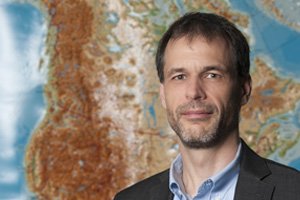 John Hasse, Ph.D. AICP John Hasse, Ph.D. AICP
Professor
Undergraduate Program Director, Community and Environmental Planning Program Director
Ph.D., Geography, Rutgers University
hasse@rowan.edu
856.256.4812
Discovery Hall 123
Curriculum Vitae
website
Dr. Hasse is a Professor in the Dept. of Geography, Planning & Sustainability and the founder/director of the Geospatial Research Laboratory, the department's hub for funded projects and community outreach activities. Since 2009 the "GeoLab" has conducted over $2M in externally funded projects. Dr. Hasse's research focuses on land development patterns and associated land resource impacts, smart growth planning evaluation and the nexus of land use, transportation and sustainability. Dr. Hasse has been involved in community development activities in the state, visualization of the impacts of sprawl and has testified as an expert witness. Since joining the department in 2001 Dr. Hasse has taught and developed many of the department's courses in planning, GIS and introductory geography. Dr. Hasse's most recent teaching interest involves integrating the concepts of Big History as a unifying theme across the department's Gen Ed courses.
|
|
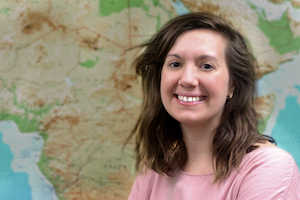
Megan Bucknum
Associate Teaching Professor
Director of Student Experience, Urban and Regional Planning (Admissions, Assessment, and Accelerated Dual Degree Programs)
M.U.E.P., Urban and Environmental Planning, University of Virginia
bucknum@rowan.edu
856.256.4811
Discovery Hall 130
Curriculum Vitae
Megan Bucknum applies her background in urban and environmental planning to the fields of food systems and participatory planning. Leveraging knowledge gained from holding positions across the food supply chain, she conducts research about regionally-based food distribution models that address sustainability and food security. Additionally, she integrates her experience facilitating public meetings, conducting interviews and designing participatory research projects into the curriculum of her courses and in support of faculty research projects. Motivated by the power of narrative, her research and class projects use interviews and oral histories to explore barriers and opportunities along our food supply chains and to understand how people connect to the built and natural environment This method allows people to be both involved and informed by her projects. She currently teaches Introduction to Planning and Environmental Design, Urban Geography and Food Systems Planning.
|
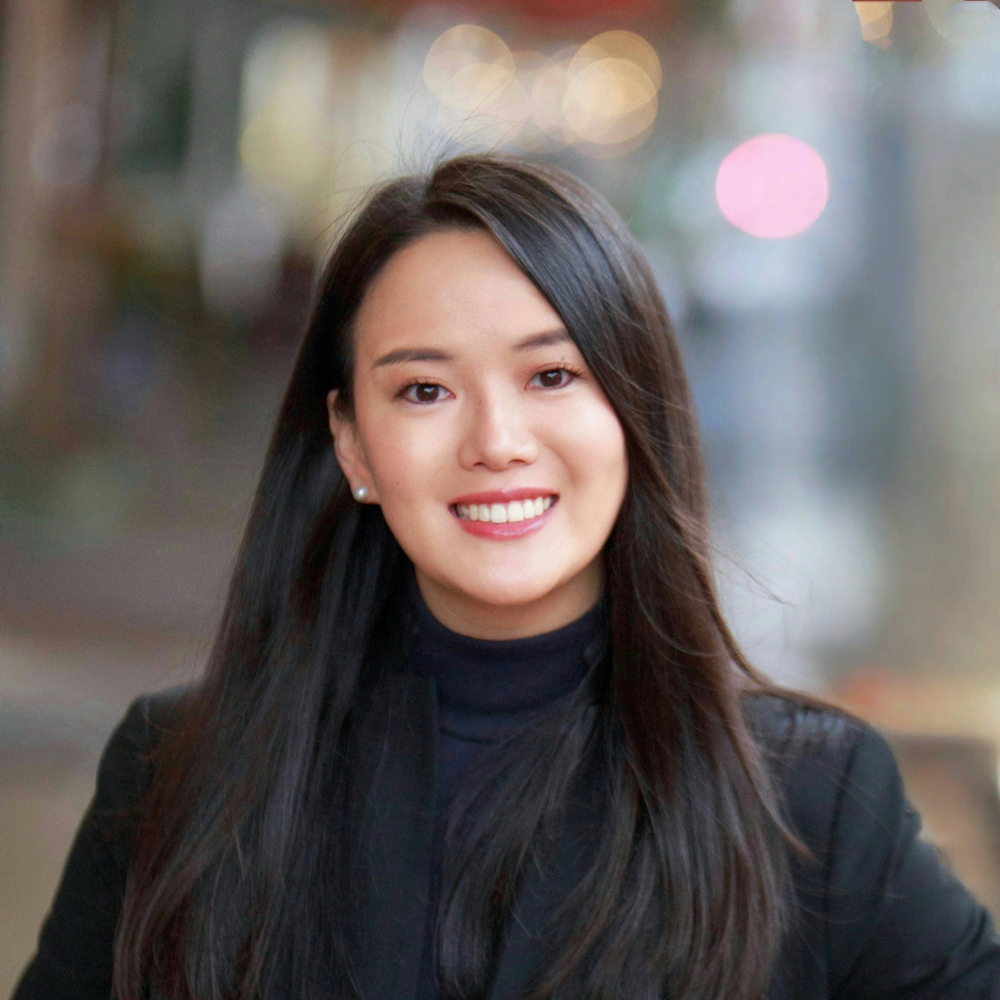
Qian He, Ph.D. AICP
Assistant Professor
Ph.D., Urban Planning and Public Policy, University of Texas at Arlington
he@rowan.edu
Discovery Hall 124
Curriculum Vitae
856.256.4500 x53977
Website
Dr. Qian He is an Assistant Professor in the Department of Geography, Planning, and Sustainability at Rowan University and the Director of the Community Action for Resilience and Equity (CARE) Lab. She is a member of the American Institute of Certified Planners (AICP) with a Ph.D. in Urban Planning and Public Policy. Her research focuses on the risks and resilience of vulnerable communities at the intersection of the urban built environment, public policy, and governance. Dr. He uses advanced modeling and urban informatics techniques to examine how planning decisions and public policies shape the well-being of historically disadvantaged communities facing natural and societal hazards. Her work explores the impacts of sea-level rise, disaster aid, and extreme weather events on mobility and housing stability, as well as the role of transit accessibility, eviction risk, and systemic inequalities in shaping community resilience. Through her research and teaching, she aims to inform equitable planning and policy solutions that strengthen adaptive capacity and social justice. Dr. He's work has been supported by the National Science Foundation (NSF), the U.S. Environmental Protection Agency (EPA), and the National Aeronautics and Space Administration (NASA), among other agencies. Before joining Rowan, Dr. He was a Postdoctoral Research Associate at the University of Maryland, College Park, in the Department of Civil and Environmental Engineering. She earned her Ph.D. in Urban Planning and Public Policy from the University of Texas at Arlington.
|
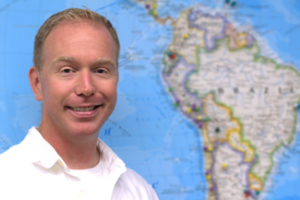 Kevin Keenan, Ph.D. AICP Kevin Keenan, Ph.D. AICP
Professor
Ph.D., Graduate School of Geography, Clark University
keenankp@rowan.edu
856.256.4231
Discovery Hall 128
Dr. Keenan is a professor of the Department of Geography, Planning, and Sustainability in the School of Earth and Environment. Dr. Keenan earned his doctorate in urban geography from Clark University in 2009, a master’s degree in geography from Hunter College in 2005, and a master’s degree in public policy from the State University of New York at Stony Brook in 2000. His undergraduate degree, awarded in 1999, is also from Stony Brook. Dr. Keenan studied Political Science, Philosophy, and History, graduated summa cum laude, and is a member of Phi Beta Kappa. Dr. Keenan achieved certification as a planner from the American Institute of Certified Planners in 2014, and he has maintained this certification. Dr. Keenan is also trained in diversity and inclusion. Dr. Keenan has published widely on the topics of environmental risk and hazards, and he has applied those theories to the study of novel threats including terrorism and cyber vulnerability. Keenan’s work appears in several journals of note, including Environment and Planning A, Urban Affairs Review, and Urban Geography. Most recently, Dr. Keenan has studied the application of theories of terrorism to the study of the Mother Emanuel Church shooting that occurred in Charleston, SC in 2015 and the articulation of race and racism in the U.S. south. In addition, Dr. Keenan has published research on how students learn research methods in geography, as well as how gender affects the interpretation of risk. Formerly, Dr. Keenan was an associate professor in the Department of Political Science at the College of Charleston in Charleston, SC and a core faculty member in the Public Administration Program. Dr. Keenan also maintains a teaching affiliation in Hunter College’s Department of Urban Policy and Planning.
|
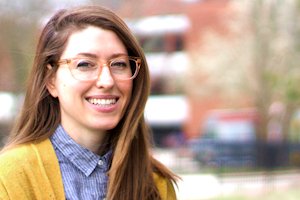
Jennifer Kitson, Ph.D.
Associate Professor, jointly appointed with the Department of Art, College of Communication and Creative Arts
Ph.D., Geography, Arizona State University
kitson@rowan.edu
856.256.4817
Westby Hall 209H
Curriculum Vitae
Dr. Kitson is an associate professor in the Department of Geography, Planning, & Sustainability. She is a west coast transplant with three degrees in geography: a doctorate from Arizona State University, a master’s degree from California State University, Los Angeles, and a bachelor’s from San Francisco State University.
Dr. Kitson’s research explores urban, environmental, and social issues through the lived experience of place. She investigates the role of embodied experience in making just, hospitable, and sustainable communities, including on topics such as urban history, memory and nostalgia, smell and place, public art and space, pedestrian and public geographies, sustainable urbanism, and placemaking. She has published in journals such as cultural geographies, GeoHumanities, and Environmental Values and serves on the Women’s and Gender Studies Council at Rowan University. She is committed to cultivating inclusive learning communities in the courses she teaches, including Cultural and Urban Geography, Sensing the Sustainable City, and Senior Seminar. Students in her courses undertake experiential learning and fieldwork in exploring the social and sensory dimensions of public life and space as critical dimensions of pluralistic and sustainable communities.
|
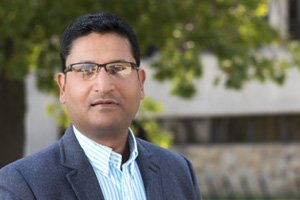 Mahbubur Meenar, Ph.D. Mahbubur Meenar, Ph.D.
Associate Professor
Graduate Program Director, Urban and Regional Planning
Ph.D., Geography and Urban Studies, Temple University
meenar@rowan.edu
856.256.5812
Discovery Hall 126
Curriculum Vitae
Research lab web site:
https://www.planviz.org
Dr. Mahbubur Meenar is an Associate Professor of Planning in the Department of Geography, Planning, and Sustainability and the director of Community Planning + Visualization Lab at Rowan University. Dr. Meenar has a multi-disciplinary background in architecture (B.Arch.), urban planning (M.U.P), and geography and urban studies (Ph.D.). He examines the connection between human and spatial dimensions (e.g., natural and built environments) in developing plans for sustainable and resilient communities, focusing on the nexus of land, water, and food. His specific research interests include (i) community food systems, environment, and security; (ii) blue, green, and grey infrastructure; (iii) sustainable development, design, and policy; and (iv) digital tools, technologies, and societies. Dr. Meenar has served as the principal investigator on research grants funded by the US EPA, NASA, NSF, Robert Wood Johnson Foundation, and other agencies. He has published 40 peer-reviewed articles in leading journals. Dr. Meenar currently teaches Environmental and Sustainability Planning, Geovisualization, and Planning Studio.
|
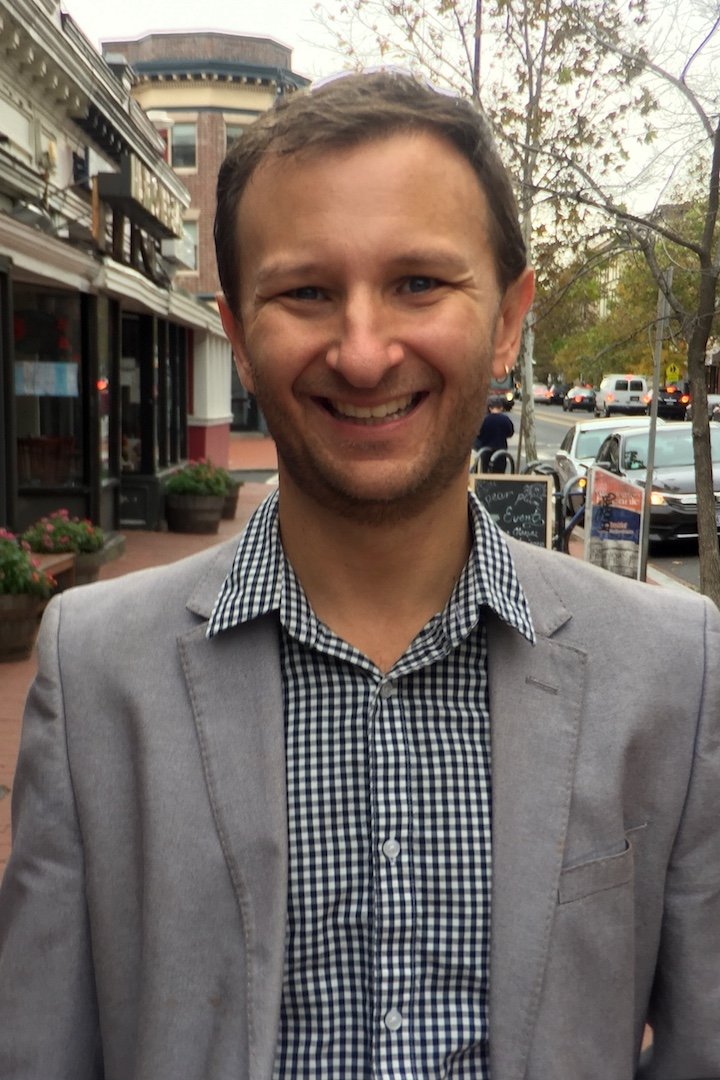
Louis L. Thomas, Ph.D.
Assistant Teaching Professor
Ph.D., Urban Planning, Policy, and Design, Massachusetts Institute of Technology
thomaslou@rowan.edu
Discovery Hall 127 Curriculum Vitae856.256.4500 x53975 Dr. Lou Thomas is passionate about creating an equitable, sustainable, and all-age-friendly city. His research focuses on family-oriented and multi-generational high-density as one tool in our toolbox for addressing climate change, inequality, and social isolation. His work has been published in JAPA, Planning Magazine, PLATFORM, Planning Perspectives, and he was a guest on UCLA’s Housing Voice podcast. A dedicated educator, he has previously taught in planning programs at Hunter College, the University of Maryland College Park, Georgetown University, George Washington University, and the University of the District of Columbia's Urban Sustainability and Environmental Science program. He was also an Associate Professor of American History & Urban Studies at Bard Early College DC and a Postdoctoral Scholar in the Urbanism Lab at the University of Chicago. He earned his PhD from MIT's Dept. of Urban Studies & Planning in 2019, and his MCP from UMD in 2012. He currently teaches Introduction to City Planning; Land Use & Conservation; Community Planning, Engagement & Site Design; and Environmental / Sustainable Planning.
|
 John Hasse, Ph.D. AICP
John Hasse, Ph.D. AICP

 Kevin Keenan, Ph.D. AICP
Kevin Keenan, Ph.D. AICP
 Mahbubur Meenar, Ph.D.
Mahbubur Meenar, Ph.D.